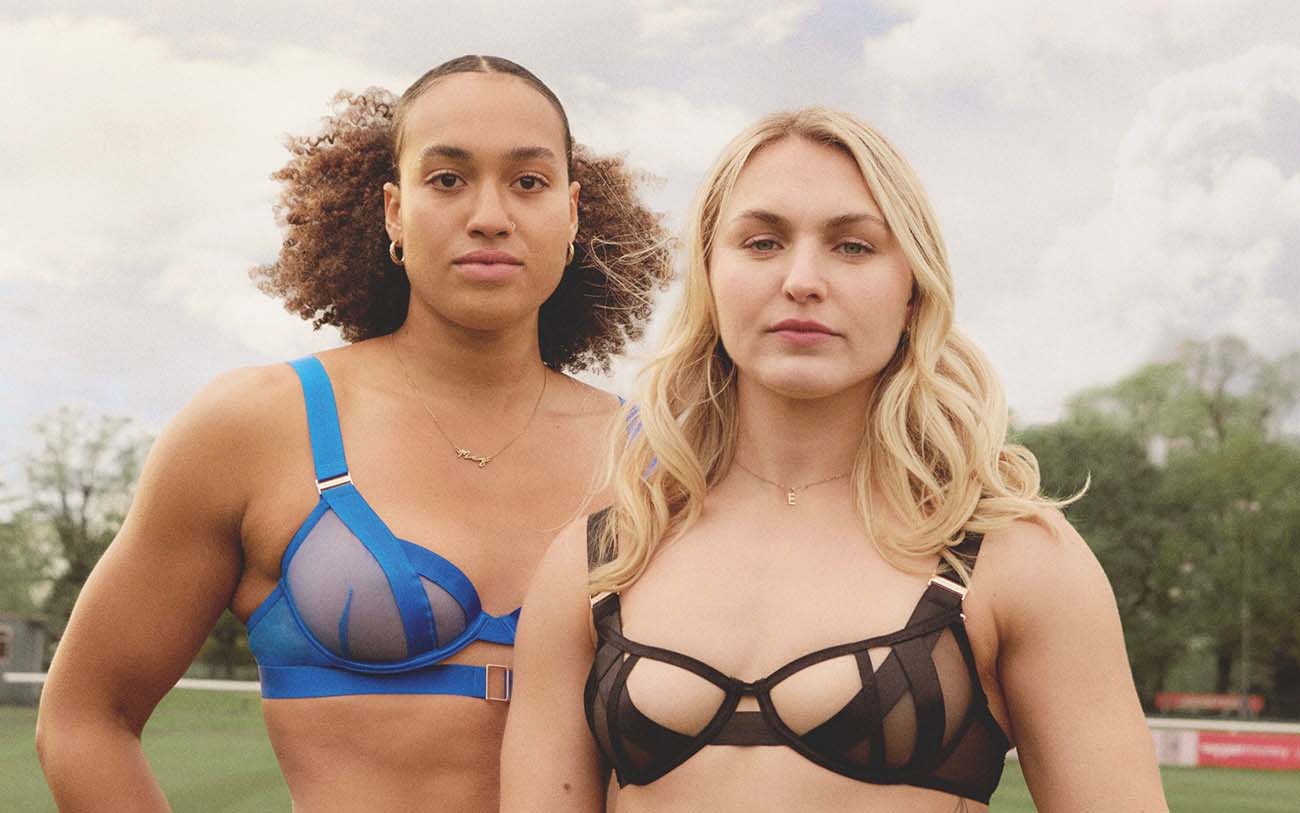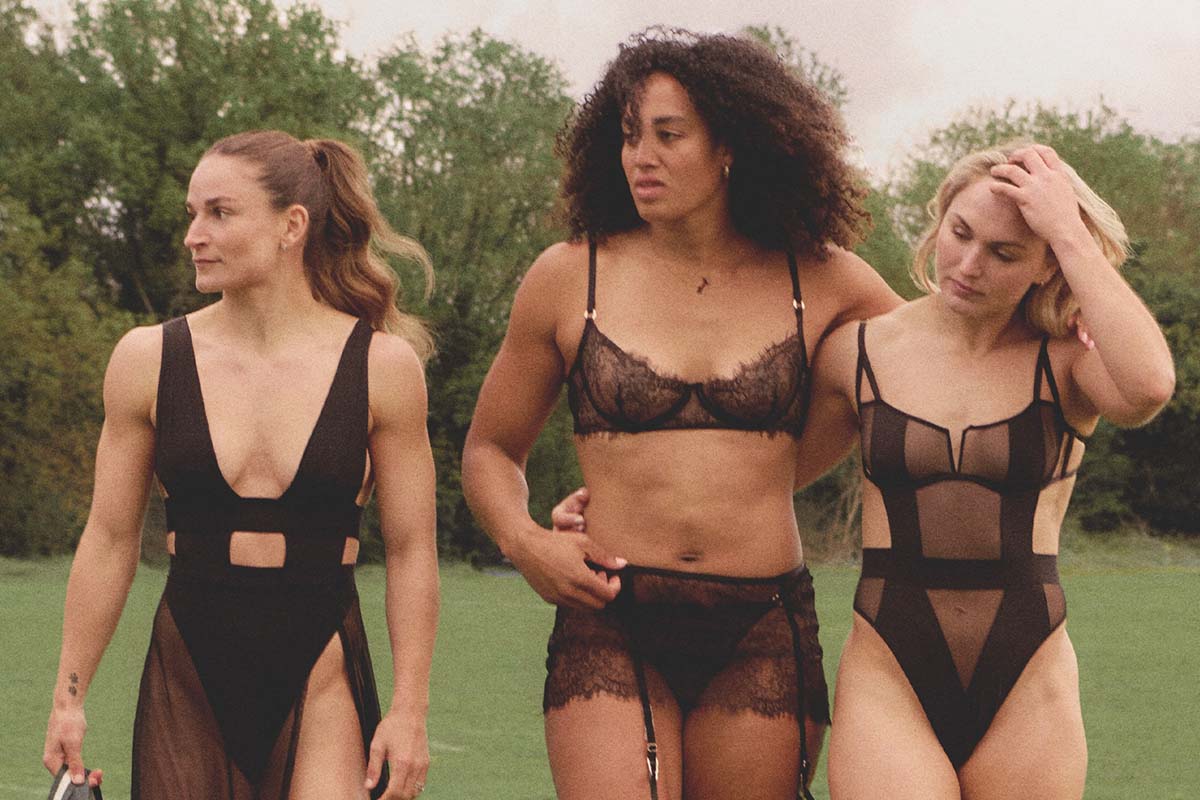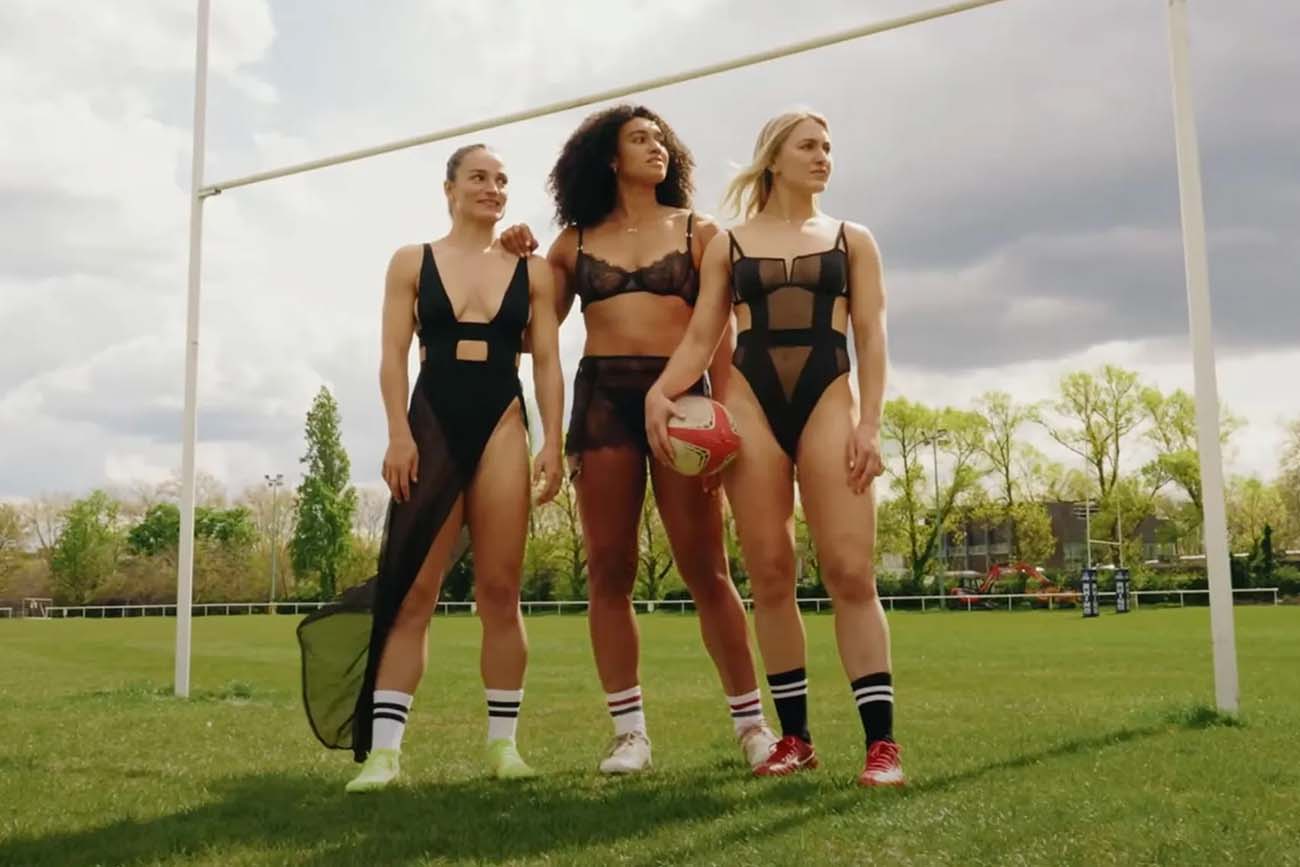Bluebella, a British luxury lingerie brand, has launched a bold new body positivity campaign featuring members of the Team GB Rugby Sevens squad.
The campaign, titled #StrongIsBeautiful, has sparked a mixed reaction, drawing both significant support and harsh criticism. The controversy primarily revolves around the portrayal of female athletes in lingerie, raising questions about feminism, body positivity, and the objectification of women.
Here, we try to give some details to the background of this controversial campaign, pick apart the arguments for both camps, and relate it to the broader debate surrounding female athletes in advertising and media.

The Campaign
Bluebella’s #StrongIsBeautiful campaign features Team GB Rugby Sevens players Jasmine Joyce, Celia Quansah, and Ellie Boatman. The campaign aims to challenge traditional perceptions of femininity and strength by showcasing these women’s rugby athletes in luxurious lingerie.
The photoshoot, set against the backdrop of Richmond Rugby Club’s pitches in south-west London, presents the athletes in various poses that highlight their muscular and toned physiques.
The Intentions
According to Emily Bendell, CEO and founder of Bluebella, the campaign seeks to change the damaging perception that the strong female form is not feminine. Bendell emphasised that strength and femininity can coexist and that this campaign aims to empower women to feel proud of their bodies.
Ellie Boatman echoed this sentiment, stating that the campaign is about showing girls that sport and fitness can make them feel empowered and that they can be both muscular and feminine.
Support for the Campaign
Supporters of Bluebella’s #StrongIsBeautiful campaign praise its bold and empowering message, seeing it as a step forward in challenging outdated stereotypes about female athletes. By featuring strong, athletic women in lingerie, the campaign broadens the definition of beauty to include athletic physiques, often underrepresented in fashion and media.
Advocates believe the campaign promotes a positive body image by countering unrealistic beauty standards often seen in media. Featuring athletes like Jasmine Joyce, Celia Quansah, and Ellie Boatman, it demonstrates that strength and beauty can coexist.
This message is crucial for young girls, many of whom drop out of sports due to body insecurities. Studies show that 70 percent of young girls drop out of school sports due to clothing and body image concerns, with many feeling sexualised by their sports uniforms.
Ellie Boatman highlighted that the campaign shows how sport and fitness can empower girls to feel both strong and feminine simultaneously. This aims to inspire a new generation of women to embrace their bodies and pursue their interests without fear of judgment.

Criticism and Backlash
Despite its creators’ claimed noble intentions, the campaign has faced substantial criticism. Prominent former athletes like Martina Navratilova and Sharron Davies have labelled it regressive and sexist, arguing that it objectifies female athletes and reinforces harmful stereotypes. They contend that it values women primarily for their appearance rather than their athletic abilities.
Navratilova, an advocate for gender equality in sports, described the campaign as “really regressive and sexist,” expressing concern that it could undermine progress in women’s sports by focusing on their bodies instead of their skills.
Davies, a former Olympic swimmer, was even more critical, calling the campaign “utterly shameful” and suggesting it might deter young girls from sports by implying their value lies in their appearance.
Other critics argue that the campaign’s empowerment message is overshadowed by the sexualisation of the athletes. They worry that promoting body positivity shouldn’t come at the cost of reducing women to their physical appearance, potentially sending a mixed message to young girls.
Broader Debate
The controversy has ignited a broader debate about the portrayal of female athletes in media and advertising. Critics argue that such campaigns detract from the athletic achievements of the women involved and reduce them to mere objects of the male gaze.
They believe that promoting body positivity should not come at the expense of reinforcing stereotypes that have historically marginalised women in sports.
On the other hand, supporters argue that women should have the freedom to express their femininity in whatever way they choose, including through lingerie photoshoots. They assert that the campaign does not diminish the athletes’ accomplishments, but rather celebrates their strength and confidence in a new light.
The conversation touches on the balance between empowerment and objectification, and whether the campaign helps or hinders the cause of gender equality in sports.
Conclusion
Bluebella’s #StrongIsBeautiful campaign has undeniably stirred significant conversation about body positivity, femininity, and the representation of female athletes. While the campaign has its supporters who see it as a bold move towards redefining beauty standards and empowering women, it also faces strong criticism for potentially objectifying the athletes it aims to celebrate.
The debate underscores the complexity of issues surrounding gender, media representation, and the ongoing struggle for equality in sports and beyond. As this discussion continues, it remains clear that the intersection of sports, body image, and advertising will continue to be a contentious and deeply important topic.








